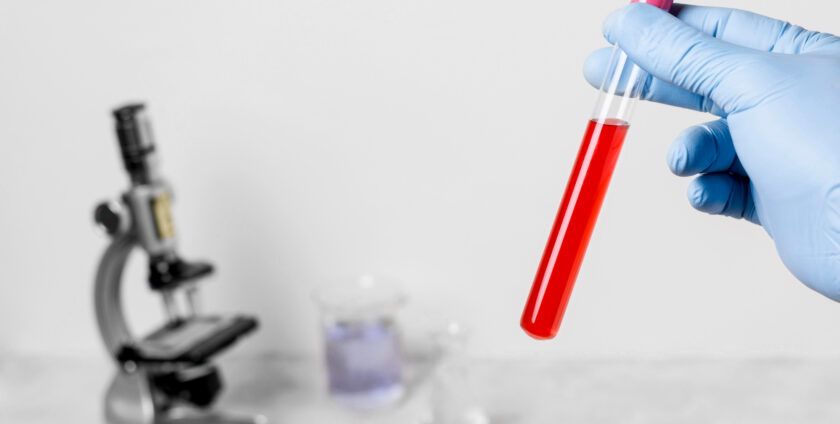
If you’ve ever seen “MCH” in your blood test results and wondered what it means, this guide will break it down for you.
What is MCH?
MCH stands for Mean Corpuscular Hemoglobin. It measures the average amount of hemoglobin in each red blood cell. Hemoglobin is the protein that helps carry oxygen from your lungs to your body. MCH values help doctors understand more about your red blood cells’ health and oxygen-carrying capacity.
What is MCH Blood Test Used For?
MCH is measured as part of a Complete Blood Count (CBC) test. The CBC gives an overview of your blood’s health by checking red blood cells, white blood cells, and platelets. MCH results, alongside other CBC indicators, help diagnose conditions like anemia and identify their causes.
MCH Levels
MCH is measured in picograms (pg) per cell. Normal adult MCH values are between 27 and 33 pg/cell.
- Normal MCH: 27-33 pg/cell
- Low MCH: Below 27 pg/cell
- High MCH: Above 33 pg/cell
Causes of Low MCH Levels
Low MCH levels may indicate hypochromic or microcytic anemia, where red blood cells lack enough hemoglobin. Possible causes include:
- Iron deficiency: Often due to blood loss, heavy periods, or a poor diet.
- Hemoglobinopathies: Blood disorders like sickle cell anemia or thalassemia.
- Chronic inflammation: From long-term conditions such as kidney or liver disease.
Symptoms of Low MCH Levels
Symptoms of low MCH may include:
- Fatigue and weakness
- Dizziness
- Pale or easily bruised skin
- Shortness of breath
Causes of High MCH Levels
High MCH levels are often associated with macrocytic anemia, where red blood cells are larger than usual and carry more hemoglobin. Causes include:
- Vitamin B12 or folate deficiency
- Thyroid issues
- Long-term alcohol use
- Side effects of certain medications, such as chemotherapy drugs
Symptoms of High MCH Levels
Signs of high MCH may include:
- Persistent tiredness
- Pale skin
- Irregular heartbeat
- Memory problems
Treatment for MCH Level Imbalance
Treatment depends on the cause of your MCH imbalance. Here are some common strategies:
Diet Changes
- Low MCH: Increase iron-rich foods like leafy greens, lean red meat, and legumes. Pair with vitamin C-rich foods to boost absorption.
- High MCH: Ensure sufficient intake of vitamin B12 and folic acid through foods like eggs, liver, and fortified cereals.
Supplements
Supplements for iron, B12, or folic acid may be recommended by your doctor. Always consult with a healthcare professional before starting any supplement.
Outlook
Most cases of MCH imbalances are manageable with diet, supplements, or other treatments. Always work with your healthcare provider to find the best approach for your specific condition.
A low MCH suggests anemia due to insufficient hemoglobin in red blood cells, often linked to iron deficiency or chronic diseases.
A high MCH may point to macrocytic anemia, indicating large red blood cells with high hemoglobin, commonly due to B12 or folic acid deficiency.
While low MCH can signal health issues, it is usually treatable. Consult with your doctor for proper diagnosis and treatment.
MCH levels outside the normal 27-33 pg/cell range should be discussed with a doctor for further evaluation.
FAQs about JITM Diagnostics
ITM Diagnostics provides a range of diagnostic services, including blood tests such as the CBC, metabolic panels, and more, with a focus on accuracy and reliability.
Yes, JITM Diagnostics is an NABL and ICMR accredited facility, ensuring high standards of testing and reliable results.
With a commitment to precision and patient care, JITM Diagnostics offers expert analyses, timely reports, and experienced staff to support your health needs.